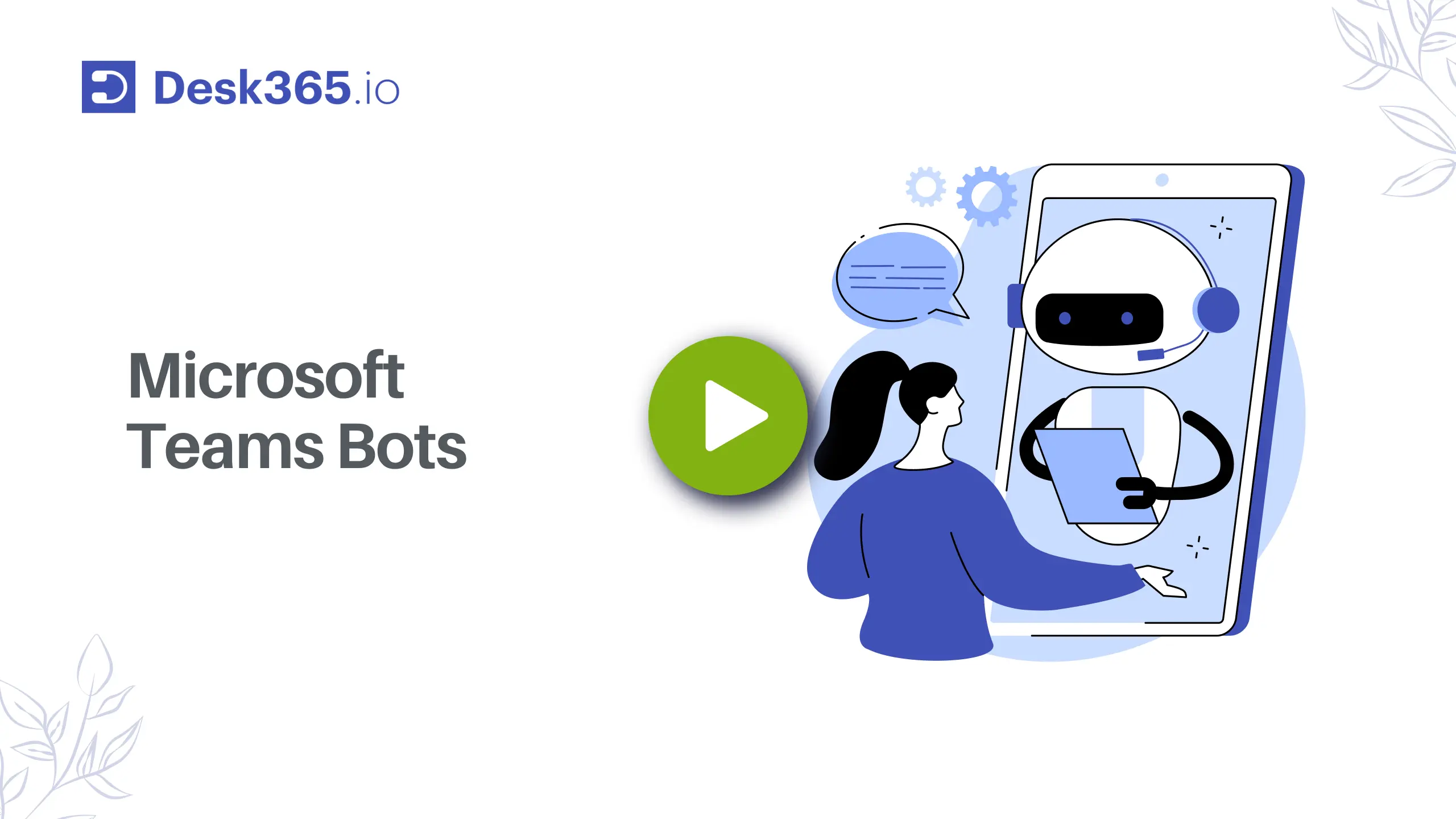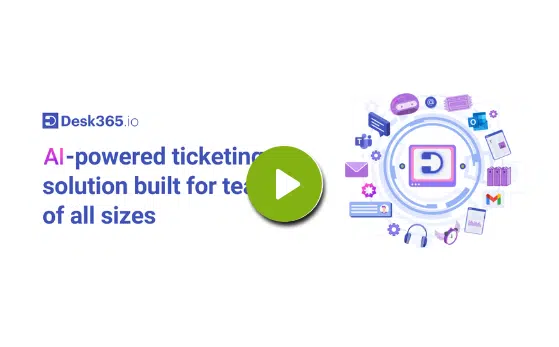AI is rapidly becoming a vital part of how companies deliver customer service, and it’s changing the game in a big way.
In fact, by 2026, it’s predicted that AI will handle 95% of all customer interactions, including both voice and text. This isn’t just a trend—it’s a complete shift in how businesses are approaching customer support.
With AI, companies are able to provide quicker responses, more personalized experiences, and improve overall efficiency. It’s clear that AI is not just the future of customer service; it’s the now.
What is AI in customer service?
AI in customer service refers to the use of artificial intelligence technology to assist or even fully handle customer support tasks. This can range from chatbots that answer simple questions on websites to more advanced systems that help with complex issues or provide personalized recommendations. Essentially, AI tools help businesses deliver quicker, more efficient service by automating tasks that would otherwise take humans longer to do.
For example, when you chat with a bot on a company’s website, that’s AI at work. It can understand your inquiry, give you a solution, or even route your issue to a human agent if needed. Over time, AI systems are getting better at understanding natural language, making them more effective at handling a wider range of customer service tasks with less human intervention. It’s all about improving the customer experience while saving businesses time and money.
What are the benefits of AI in customer service?
Benefits of AI in Customer Service
Reduce manual effort
Resolve tickets faster
Improve response accuracy
Boost agent productivity
Increase customer satisfaction
1. Reduce manual effort
AI agents automate repetitive, rule-based tasks like ticket tagging, routing, and basic queries. This minimizes the workload on human agents and allows them to focus on more complex, value-driven interactions.
2. Resolve tickets faster
AI speeds up resolution by instantly retrieving relevant information, suggesting replies, and handling common issues autonomously—reducing average response and handling times.
3. Improve response accuracy
With access to large knowledge bases and past interactions, AI ensures consistent and precise responses. This reduces human error and boosts the overall quality of support.
4. Boost agent productivity
AI works alongside agents, offering suggestions, auto-filling responses, and managing workflows. This enables agents to handle more cases in less time, increasing overall team efficiency.
5. Increase customer satisfaction
Faster, more accurate support means happier customers. With 24/7 availability and personalized assistance, AI helps build loyalty and improve customer experience.
7 effective ways to use AI for enhancing customer service
Here are 7 effective ways to use AI for enhancing customer service
1. Automated customer support with chatbots
Chatbots are one of the most common applications of AI in customer service. They can answer frequently asked questions, guide users through processes, and even resolve common issues without human intervention. This ensures customers get quick responses anytime they need them, freeing up your support team for more complex cases. It’s like having a virtual assistant available 24/7.
2. Personalized recommendations
AI can analyze a customer’s past interactions and behaviors to offer personalized recommendations, whether it’s products, services, or solutions. For example, if a customer has frequently asked about a particular product, the AI can proactively suggest it next time. This not only boosts customer satisfaction but also drives sales by offering tailored suggestions.
3. Sentiment analysis for better engagement
AI-powered sentiment analysis tools can scan customer interactions (emails, chats, social media posts) to gauge how customers are feeling. Whether they’re happy, frustrated, or confused, understanding their emotional tone helps businesses respond appropriately. By recognizing negative sentiment early, you can take action before it escalates into a bigger issue.
4. Self-service portals
AI can power self-service portals where customers can find answers to their questions or solve problems on their own. These portals are typically enhanced with AI-driven search functionalities that can suggest articles, videos, or FAQs based on the customer’s inquiry. This empowers customers to resolve their issues without waiting for a support agent.
5. AI-driven live chat
While chatbots handle simple queries, AI-powered live chat can assist human agents by providing real-time suggestions, responses, or knowledge base articles. It essentially acts as a support tool for your agents, making their work more efficient while ensuring your customers get accurate answers quickly.
6. Improving call center efficiency
AI in call centers can be used to route calls to the right agents, transcribe conversations, and provide agents with instant insights about the customer’s history and preferences. It can also help with analyzing call data to improve performance, detect common problems, and suggest improvements. With AI, call centers can handle higher volumes of calls more efficiently, ensuring that each customer receives the best service possible.
Recommended Reading: Top AI Helpdesk Software in 2026
Examples of AI in customer service
1. AI Agents
AI agents act as the first line of support, providing quick, contextual, and multilingual responses to customer inquiries. By understanding the customer’s intent and context, these agents can resolve common questions instantly, reducing wait times and allowing human agents to focus on complex issues.
This leads to smoother, faster support interactions and better global accessibility. AI agents are revolutionizing customer service by handling a variety of tasks, from answering basic questions to managing more complex issues. They’re used across multiple channels—whether it’s chat, voice calls, or even on the help site. The best part? AI agents can provide personalized, intelligent, and conversational interactions, all without needing human involvement.

2. Summarization
One often overlooked but critical part of customer service is summarizing cases. AI can assist here by generating case summaries quickly and accurately. Whether a customer’s issue is being handed off from an AI agent to a human or when it’s being escalated to a supervisor, AI can capture the essential details of the conversation: recommendations, solutions, and any important points. This significantly reduces the time spent by agents in reviewing past interactions and helps them jump straight into problem-solving. It’s especially helpful when closing cases, as the AI can summarize the entire interaction and make sure nothing is missed, improving efficiency and reducing errors.

3. Personalized recommendations
AI can take customer service to the next level by offering personalized recommendations. By analyzing past interactions and purchase history, AI algorithms can suggest products, services, or solutions tailored to each individual customer. For example, if a customer regularly buys a particular brand of shoes, AI might recommend a new pair based on their previous preferences. Or, if a customer is reaching out about an issue with a product, AI can suggest troubleshooting steps or relevant solutions. These personalized recommendations not only enhance the customer experience but also increase the chances of additional sales and create a more tailored, engaging service experience.
4. Automated ticketing systems
AI can automate the ticketing process by categorizing, prioritizing, and routing customer inquiries to the appropriate department or agent. For example, when a customer submits a request via email or chat, AI can automatically assess the nature of the inquiry (technical issue, billing question, etc.) and assign it to the correct team. This ensures that customers receive faster responses from the right agents without human intervention. It also reduces manual work for the support team, allowing them to focus on more critical tasks.
5. AI-powered voice assistants
In customer service call centers, AI-powered voice assistants can help by answering basic questions and handling routine tasks over the phone. For example, when a customer calls to check the status of their order, an AI voice assistant can pull up the information and give an immediate update. If the issue is more complex, the AI can transfer the call to a human agent with all the context already captured, speeding up the resolution process. These voice assistants can also guide customers through troubleshooting steps or help them navigate automated menus.
7. Real-time language translation
AI-powered language translation tools can be incredibly useful for companies with international customers. These tools enable real-time translation during live chats or even on phone calls, allowing support teams to interact with customers in their preferred language. For example, Google Translate or Microsoft Translator can be integrated into customer service systems, ensuring that language barriers don’t hinder the support process. This improves customer satisfaction by making support accessible to a wider audience.
9. Generate Knowledge Base (KB) articles
AI can automatically convert detailed ticket conversations and customer interactions into well-structured knowledge base articles. These articles serve as self-help resources for customers and support teams, reducing repetitive queries and enabling faster problem-solving. This also helps keep knowledge bases up to date without extensive manual effort.

10. Automated post-service surveys
After a customer interaction, AI can automatically send personalized follow-up surveys to collect feedback. AI-powered systems can analyze the responses in real time, identifying common pain points or areas for improvement. This enables businesses to address customer concerns quickly, improve service quality, and measure satisfaction without having to sort through survey responses manually.
Things to consider when implementing AI in customer service
Things to consider when implementing AI in customer service
1. Focus on the customer, not just the technology
It’s easy to get excited about what AI can do, but never forget who it’s for — your customers. If the experience feels clunky, impersonal, or frustrating, it won’t matter how “advanced” your system is. AI should make customer interactions smoother, faster, and more helpful, not add new headaches.
2. Be transparent
Customers appreciate honesty. If they’re talking to an AI, don’t pretend it’s a person. Being upfront builds trust and sets the right expectations from the start. Plus, if they know it’s a bot, they’ll be more forgiving when it inevitably gets something wrong.
3. Keep your data clean and current
AI is only as good as the information you feed it. If your knowledge base, CRM, or customer history is a mess, your AI will reflect that. Invest time in organizing and updating your data before you deploy — it’ll pay off in smoother, smarter conversations.
6. Protect customer trust
Privacy and security are deal-breakers. Be crystal clear about how customer data is used and protected when AI is involved. Following best practices and regulations like GDPR isn’t just about compliance — it’s about earning and keeping customer trust.
5. Train your team, not just your tech
AI changes the way service teams work. Instead of answering every routine question, agents might shift toward handling complex problems or overseeing AI interactions. Equip your team with new skills, give them confidence, and show them how AI can actually make their jobs more interesting — not irrelevant.
Get started with AI in customer service
Getting started with AI in customer service doesn’t have to be overwhelming. Start by figuring out where you need the most help, pick the right tools that fit your business, and take it one step at a time. Make sure your AI works smoothly with your current systems and keep an eye on how it’s performing so you can make improvements.
Most importantly, don’t lose the human touch — always have a way for customers to reach a real person when they need to. With a thoughtful approach and ongoing adjustments, AI can really boost how you serve your customers and make things run more smoothly.







